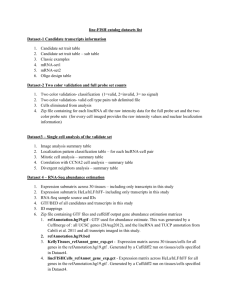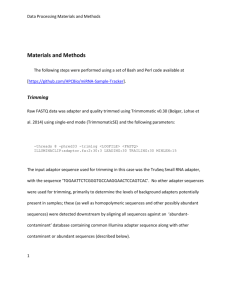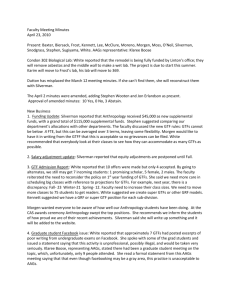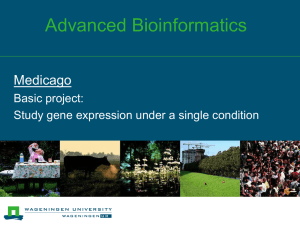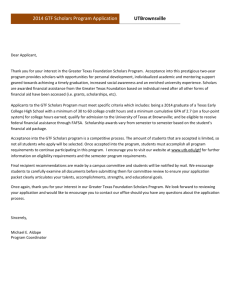3.0 Application and Eligibility Requirements
advertisement
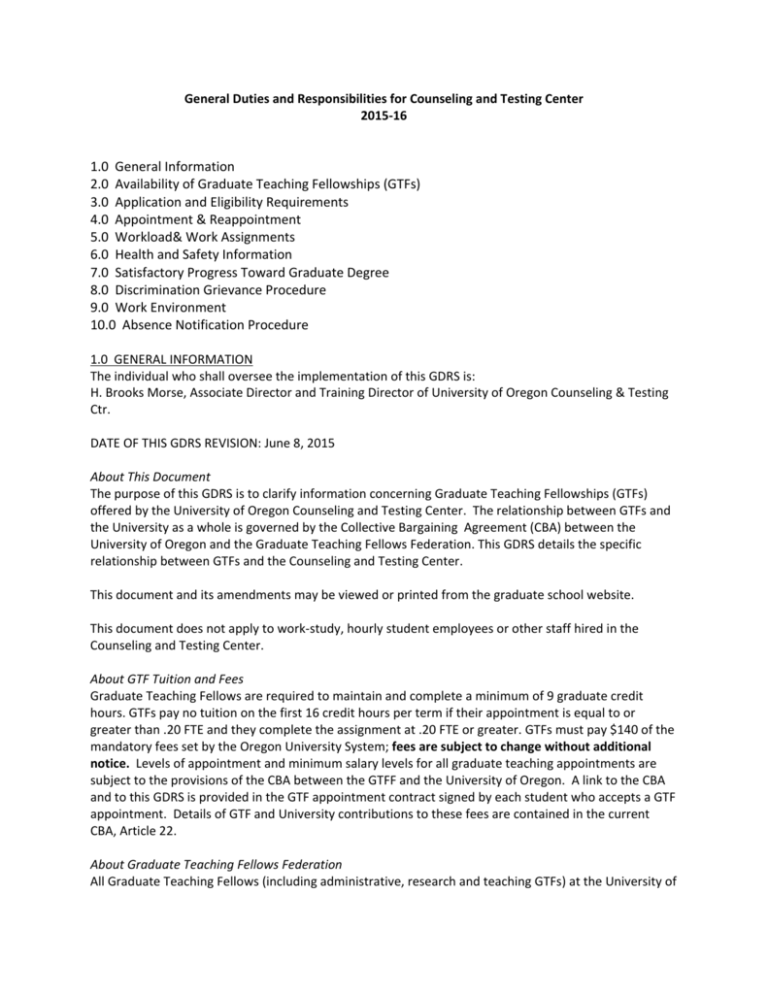
General Duties and Responsibilities for Counseling and Testing Center 2015-16 1.0 General Information 2.0 Availability of Graduate Teaching Fellowships (GTFs) 3.0 Application and Eligibility Requirements 4.0 Appointment & Reappointment 5.0 Workload& Work Assignments 6.0 Health and Safety Information 7.0 Satisfactory Progress Toward Graduate Degree 8.0 Discrimination Grievance Procedure 9.0 Work Environment 10.0 Absence Notification Procedure 1.0 GENERAL INFORMATION The individual who shall oversee the implementation of this GDRS is: H. Brooks Morse, Associate Director and Training Director of University of Oregon Counseling & Testing Ctr. DATE OF THIS GDRS REVISION: June 8, 2015 About This Document The purpose of this GDRS is to clarify information concerning Graduate Teaching Fellowships (GTFs) offered by the University of Oregon Counseling and Testing Center. The relationship between GTFs and the University as a whole is governed by the Collective Bargaining Agreement (CBA) between the University of Oregon and the Graduate Teaching Fellows Federation. This GDRS details the specific relationship between GTFs and the Counseling and Testing Center. This document and its amendments may be viewed or printed from the graduate school website. This document does not apply to work-study, hourly student employees or other staff hired in the Counseling and Testing Center. About GTF Tuition and Fees Graduate Teaching Fellows are required to maintain and complete a minimum of 9 graduate credit hours. GTFs pay no tuition on the first 16 credit hours per term if their appointment is equal to or greater than .20 FTE and they complete the assignment at .20 FTE or greater. GTFs must pay $140 of the mandatory fees set by the Oregon University System; fees are subject to change without additional notice. Levels of appointment and minimum salary levels for all graduate teaching appointments are subject to the provisions of the CBA between the GTFF and the University of Oregon. A link to the CBA and to this GDRS is provided in the GTF appointment contract signed by each student who accepts a GTF appointment. Details of GTF and University contributions to these fees are contained in the current CBA, Article 22. About Graduate Teaching Fellows Federation All Graduate Teaching Fellows (including administrative, research and teaching GTFs) at the University of Oregon are represented by a union, the GTFF. Official membership is at the individual's discretion although payment of monthly dues or an equivalent is required under a fair share agreement. Levels of appointment and minimum salary levels for all graduate teaching appointments are subject to the provisions of the CBA between the GTFF and the University of Oregon. A link to the CBA and to this GDRS is provided in the GTF appointment contract signed by each student who accepts a GTF appointment. 2.0 AVAILABILITY OF GRADUATE FELLOWSHIPS The availability of GTF appointments are programmatically determined by the Director and Associate Director of the Counseling and Testing Center. The number of GTF positions available is subject to the budgetary constraints on the GTF employing unit and the University, and is based on the unit’s specific need for one or more GTFs. This GTF employing unit makes an effort to distribute GTF opportunities to as many students as possible. In recent years GTF positions have been offered by the UCTC to provide direct student support and to continue developing intervention programs. Last year we also added an assessment GTF to assess the effectiveness of our services and perform program review. The availability of GTF appointments for the upcoming academic year is usually determined April – May. In recent years, GTF assignments during the academic year in this GTF employing unit have included Administrative GTF’s. For the 2015 year, summer term appointments were offered to two of the GTF’s we hired for the academic year. These GTF assignments during the summer in this GTF employing unit included Administrative GTF’s. 3.0 APPLICATION AND ELIGIBILITY REQUIREMENTS Eligible students for a GTF appointment in Counseling & Testing Center Due to strategic alliances with academic departments, all of our GTFs are hired from those enrolled in the Counseling Psychology graduate program. If no qualified graduate students in Counseling Psychology are available, the position may remain unfilled or may be filled by qualified graduate student in other relevant departments. In addition, the Counseling & Testing Center requires that a GTF maintain their studies in residency at the U of O during each term of appointment. The University Graduate School requires that a GTF be enrolled for a minimum of 9 graduate credit hours towards the degree per term of appointment. Note regarding graduate programs and departments that employ GTFs: Students enrolled in other UO graduate programs or departments who have appropriate experience and/or credentials are also eligible for GTF positions in this employing unit. In all cases, preference is given to the department or program’s own students. Experience or credentials required in order to be considered include Possess the ability to effectively relate to the student population we serve To comply with agency expectations regarding clinical paperwork and administrative duties Demonstrate a commitment to multicultural organizational development and multicultural competence. Previous clinical/intake/outreach/program assessment experience as relevant to individual positions. Students will be considered in the following order For strategic alliance GTF positions, preference is given to those graduate students enrolled in Counseling Psychology. This GTF employing unit has established a maximum number of reappointments for which a student is eligible. These are as follows: Up to two years of reappointment for either doctoral or masters level GTF's. Reappointments will be based on evaluation of previous work in GTF position and academic standing. It is rare for a GTF to be offered a third year of reappointment at the UCTC with decision based on exceptional GTF performance and with academic program consultation. The Graduate School requires that students be enrolled for and successfully complete a minimum of 9 graduate credit hours towards the degree during each term of a GTF appointment and be making satisfactory progress toward their degree in order to be eligible for a GTF appointment (see Section 7). In addition, this GTF employing unit requires that a GTF maintain their studies in residency at the UO during each term of appointment. This unit routinely posts its positions via the Graduate School’s “GTF Openings” page, which, for each position, includes a brief description of duties and responsibilities, FTE, and preferred qualifications for appointment and reappointment; and is posted for a minimum of 10 business days Information about the availability of positions for the upcoming academic year will be shared with incoming graduate students by posting announcements to the Graduate School and Counseling Psychology Department. A brief description of the position’s duties and responsibilities, FTE, workload, appointment, and reappointment qualifications will be included in the announcement. Positions offered by the UCTC, which are not included in the spring term application pool, will be filled by following the same application and selection process as outlined in this statement with an identifying statement of the new submittal date. From time to time, emergency appointments will be necessary. In such cases, the UCTC will post notices with appropriate departments and solicit application similarly. Completed applications shall be turned into the UCTC by a specified deadline listed in each posting. Applicants must send a separate letter of interest, resume or vita, and two letters of recommendation for each position for which they are applying. Each candidate will be sent communication notice of the hiring decision within five working days after the decision has been made. (Article 17, Section 1) 4.0 APPOINTMENT AND REAPPOINTMENT In accordance with the CBA, this GTF employing unit’s standing committee of at least three members includes: Associate Director, GTF Program Supervisor, and another UCTC staff member Recommendations for appointment and reappointment will be made to the Associate Director or Director of the Counseling and Testing Center (or the Director's designee) by the GTF Supervisor. The selection committees for Counseling and Testing Center new GTFs will comprise of Counseling and Testing Center staff as appointed by the Director (or their designee) of the Counseling and Testing Center including the program coordinator who will be supervising the specific GTF. This hiring unit has in recent years had non-clinical summer term appointments. Each candidate will be sent a notice of the hiring decision within five working days after the decision has been made. GTFs will be appointed year-to-year rather than term-to-term, whenever feasible. GTFs are not employed term-by-term in order to determine whether they are adequately qualified for a GTF position. In the case of the continuation of a particular position, the same student may continue in (i.e., be reappointed to) the particular GTF position without any new announcement of the position. Appointments and reappointments will be based on evaluation of each candidate's qualifications with respect to eligibility criteria in section 3, as well as (A) general criteria for any appointment, (B) general criteria based on particular types of work assignments available within the GTF employing unit and (C) specific criteria relating to the particular GTF work assignment. For an Administrative GTF In the case of the continuation of the same position, the Counseling and Testing Center may decide to continue with the same GTF in the position without a new announcement of the position. GTFs will be reappointed to a third year in the same position only when they demonstrate advanced skills relevant to the position (clinical, outreach, program administration, and assessment/research) as well as advanced abilities in the areas of initiative, leadership, and autonomy. For the position of Eating Disorder Specialist: Ability to assess clients regarding eating disorder and body image issues. Ability to provide treatment (individual and group) or make community referrals. Ability to conduct initial assessments and eating disorder assessments. Knowledge or experience with a non-diet, health at every size eating disorder treatment approach. Ability to co-lead Eating Disorder therapy groups, including a psycho-educational group. Ability to provide campus outreach in the area of eating disorders. Ability to consult with university staff and students regarding eating disorder issues. Ability to coordinate UCTC Eating Disorder Care team meetings. Ability to work with other UCTC clients with concerns unrelated to eating disorders. Demonstrated commitment to multicultural organizational development and multicultural competence. Strong organizational skills. For the position of Programming Specialist – Outreach: Ability to conduct needs assessments to ascertain how the Counseling & Testing Center can best outreach to the campus community, especially underserved populations. Ability to relate, connect and develop rapport with students and campus partners. Ability to conduct initial assessments, triage and crisis counseling. Demonstrated initiative, creativity and inventiveness, autonomy, interpersonal skills, communication skills, and leadership qualities in creating and implementing outreach services. Demonstrate strong interpersonal communication skills especially while providing information and promoting services provided by the UCTC. Ability to design and implement developmental intervention programs, especially programs relevant to underserved populations. Demonstrated commitment to multicultural organizational development and multicultural competence. For the position of Assessment Specialist Ability to understand research methods and statistical analysis Ability to use SPSS Ability to develop, administer, and interpret program evaluation, outcome and satisfaction measures Ability to write literature reviews and assessment reports. Ability to present based on assessment and research efforts. Demonstrated strong written and oral communication, collaboration, and organization skills. Demonstrated commitment to multicultural organizational development and multicultural competence. Candidates will be rank-ordered based upon, first, the eligibility criteria in Section 3, and subsequently, the general, assignment type-related, and specific criteria referred to above. This applies to positions that become available outside the normal appointment cycle as well. If no qualified students apply or are available for a particular position, the selection committee or department head may decide to reopen the application process for the position. Generally, same application process described in Section 4 and appointment/reappointment process described here will be repeated. However, the department reserves the right to proceed to fill the position as it would an emergency appointment. (also described in Section 3). Performance of GTFs in this employing unit are evaluated at the end of each term GTF’s in the Counseling & Testing Center will be evaluated in writing twice a year (Fall and Spring terms) and provided verbal feedback only twice a year (winter and summer) by their supervisors. The criteria used for evaluation is found in section 7.0 under each specific position and on the UCTC GTF evaluation form. In this GTF employing unit, GTFs are most commonly appointed at the following full time equivalent levels (FTE) and corresponding total workloads for fall-spring appointments: .49 FTE Summer GTFs are appointed at varying FTE levels 5.0 WORKLOADS AND WORK ASSIGNMENTS Workload includes performance of all duties of the work assignment. For example, the workload for a teaching assignment would include preparation time, office hours and time spent interacting with students via email or Blackboard, etc., in addition to time spent actually teaching. In setting the workload (and thus FTE) for a particular GTF position, GTF employing units consider what constitutes a workload sufficient to perform the work assignment satisfactorily. For various work assignments, the distribution of workload among various duties is considered to be reflective of average breakdowns within the normative standard of the total workload. The distribution of time actually spent on duties may vary from week to week, but the workload per term should be within the designated number of total workload hours. GTFs are encouraged to track how they spend their work hours and to contact their supervisors early in the term if the distribution of time they are spending on individual duties varies widely from established expectations. This section sets forth expectations around duties for GTF assignment types in this unit. NOTE: Where the workload is broken down by work assignment duties and is designated as a "minimum" number of hours, the GTF is required to fulfill that specific time commitment. In this GTF employing unit, GTFs are most commonly appointed at a .49 FTE (Up to 215 hours per term or up to 645 hours per academic year). Administrative GTF’s Eating Disorder Counselor (.49 FTE) (Hour and service type distribution may be modified depending on agency needs and group start up) Clinical service delivery, including individual counseling sessions, coverage of triage brief phone assessment and/or initial assessment hours, crisis intervention and EDI-3 Assessment 10hrs/week Conduct a weekly psycho-educational My Body, My Self Group 1.5 hrs/week Participate in weekly clinical team meeting 1.5 hrs/week Provide outreach activities, including advertising and distributing information about ED groups to campus colleagues, responding to outreach requests related to eating disorders, providing workshops and psycho-educational information about eating disorders, and assisting with website revisions/updates .3 hrs/week Assist with ED Coordinator administrative projects as needed and has time Participate in individual supervision. 1 hrs/week Participate in group therapy supervision .5 hrs/week Agency administrative duties: e.g. complete all clinical paperwork, EDI-3 Reports, Case management and documentation for UCTC activities. 3.5 hrs/week Attend weekly staff meetings, and staff developments 1 hrs/week Coordinate and co-facilitate UCTC ED Treatment Care Team meetings .3 hrs/week NOTE: When groups, workshops, ED treatment care team meetings or outreaches are not running, hours will be converted to other clinical service delivery or outreach direct service. Outreach Specialist (.49 FTE) (Hour and service type distribution may be modified depending on agency and outreach program needs) Outreach provision (although focused primarily on underrepresented student groups, outreaches may also involve activities that are not specifically targeted to these populations): a. Facilitate relationship-building and psychoeducational programming and services to underserved populations on campus 5-6 hrs/week b. Providing proactive UCTC workshop series on mental health topics 1-2 hrs/week c. Networking and tabling events (i.e., attend MCC student meetings, campus events, tabling for orientation events, interact with student groups) 1-2 hrs/week Depending on agency need, GTF may provide clinical service delivery, including individual counseling sessions, coverage of triage brief phone assessments and/or initial assessment hours, and crisis intervention – 5 hrs/week Outreach activity preparation and planning 1-2 hr/week Agency administrative duties: e.g. complete all clinical paperwork, case management and documentation for UCTC activities 1- 2 hrs/week Participate in a weekly clinical team meeting 1.5 hrs/week Participate in weekly individual supervision 1 hr /week Attend weekly staff meetings and staff developments 1 hrs /week NOTE: When outreaches or workshops are not scheduled, hours will be converted to other direct service needs. Assessment Specialist (.49 FTE) The allocation of hours per week may change depending upon the needs of the Division of Student Life, UCTC and the nature of the specific projects. Participate in individual supervision (1 hr/wk) Participate in UCTC staff meeting/staff development activities 1 hr/week The following responsibilities would total 17.6 hours per week Participate in consultation with Division of Student Life staff, UCTC Staff, and other UO Staff as necessary to provide support for assessment and research projects Participation in Student Life and UCTC assessment activities Reviewing literature related to assessment and research projects Assist in the development, administration and interpretation of program evaluation, outcome and satisfaction measures Write literature reviews and assessment/research reports 6.0 HEALTH AND SAFETY INFORMATION Accident Reporting and Workers’ Compensation: The University's Workers' Compensation Program is administered by the Office of Risk Management (ORM). If you have any questions about the program, please call 346-8912 or 345-8316. All University of Oregon employees, including GTFs, are covered by workers' compensation insurance through SAIF Corporation. This coverage is for occupational injuries, illnesses or diseases that arise out of or in the course and scope of employment. The University has established procedures for reporting accidents and filing workers' compensation claims. They are intended to expedite claims processing and to minimize the possibility of delays in payment of benefits. If a GTF is injured on the job, the GTF must report it immediately to the supervisor. The supervisor will complete the Safety Incident or Accident Report (SIAR) with the GTF. If, as a result of the accident, the GTF requires medical care, a Workers’ Compensation Claim Form (801) must be completed within 24 hours. If, due to the nature of the injury or illness, the GTF is unable to complete the 801, the supervisor will submit it on behalf of the GTF. Workers’ compensation information and forms are available at http://orm.uoregon.edu/content/injury-reporting-and-workers-compensation. Oregon laws prohibit discrimination or retaliation by an employer against an employee for filing a workers' compensation claim or a safety-related complaint with OSHA (Occupational Safety and Health Administration). In addition to medical expenses related to the injury or illness, benefits provided by SAIF Corporation may also include temporary total disability payments if the GTF is unable to work as authorized by an attending physician. These payments equal 66 2/3% of the GTF's average weekly wage (up to a maximum established by the Oregon Legislature). Mileage payments for medical appointments and prescription reimbursements are also examples of benefits provided by SAIF Corporation. Certain medical treatments, however, are subject to exclusion. The GTF will be notified by SAIF Corporation of the rights and coverage when the claim is processed. An injured GTF who is unable to work may not receive both salary compensation from workers' compensation and sick leave or other pay when this results in the GTF receiving more than his/her regular monthly salary. Should this occur and payment is received from both sources, the GTF must be prepared to repay any over-payments. If the GTF believes there is some confusion about salary or workers' compensation benefits, contact ORM immediately. ORS 659A.043 – 659A.052 describe reinstatement or reemployment rights for employees who have sustained a compensable occupational injury or illness. Safety Information: The Office of Environmental Health and Safety (EH&S) is responsible for the University's safety programs. For questions or information regarding any of these programs, contact EH&S at 541-346-3192 or visit their website, http://ehs.uoregon.edu/ The University of Oregon Safety Policy may be found in the library, http://policies.uoregon.edu/policy/by/1/08-health-and-safety/safety. Safety concerns may also be submitted via an online reporting system on the Safety Advisory Committee website, http://ehs.uoregon.edu/safety-advisory- committee. Reporting Safety Hazards: GTFs who identify safety hazards and issues are encouraged to discuss them immediately with their supervisor. The following unit representative may also be contacted: Rod Keck, Administrative Services Coordinator at 346-3227. Other resources on campus to report such information include the Office of Environmental Health and Safety, a Safety Advisory Committee representative or a GTFF union representative. Off-campus resources include the local OSHA office and the Bureau of Labor and Industries (BOLI). All emergency procedures and protocol are identified in the Policy and Procedure Manual of the Counseling and Testing Center, including use of panic buttons. Evacuation plan are articulated at orientation and posted on hallways. First aid supplies are available at the front desk. No need for personal protective equipment at this GTF hiring unit. 7.0 SATISFACTORY PROGRESS TOWARD GRADUATE DEGREE Because a GTF appointment is the method by which departments can offer financial support to promising students in a graduate degree program, and should be beneficial to the student's development in that program, individuals appointed as GTFs are regarded primarily as graduate students providing service as part of a learning experience, rather than solely as employees whose education is secondary. The criteria used to assess satisfactory progress toward a graduate degree is the same for all graduate students in a particular graduate degree program, whether or not they hold a GTF position. For GTFs, satisfactory progress toward the degree is an eligibility requirement of GTF appointment and reappointment. Each GTF employing unit (employer) is responsible for verifying that the GTF is making satisfactory progress toward their degree, whether or not the hiring unit is also the GTF's graduate degree program. The GTF’s progress toward the degree is assessed based on criteria established by the GTF’s graduate degree program, regardless of where the GTF is employed. Graduate School Minimum GPA During the academic year, the Graduate School reviews academic transcripts of all graduate students holding GTF appointments. The Graduate School will notify a GTF's graduate degree program if the GTF's academic performance during the appointment period falls below the Graduate School's 3.0 GPA standard. The degree program will be asked to review the student's progress toward their graduate degree and issue its approval before a GTF reappointment can be made to that student. This GTF employing unit is an administrative, non-academic unit. Satisfactory progress is determined by each GTF’s graduate program. See that program’s GDRS for more information. A GTF appointment may be terminated pursuant to the conditions specified by Article 16 of the GTFF Collective Bargaining Agreement. Article 16 further outlines procedures for informing the GTF of deficiencies in their work performance or progress toward the degree. 8.0 Discrimination Grievance Procedure To file an employment-related discrimination grievance, GTFs are encouraged to contact the Graduate Teaching Fellows Federation. For discrimination grievances that pertain to a GTF’s role as a student, graduate students should refer to the student section of the AAEO Discrimination Grievance Procedures online (http://aaeo.uoregon.edu/booklet.html). 9.0 Work Environment This section provides information about GTF facilities and services described in Article 10 of the GTFF Collective Bargaining Agreement. Work environment resources for GTFs are listed in our Policy and Procedural Manual located at the UCTC and distributed to GTF's upon first week of employment. Workspace: All GTF’s are provided office space and keys to the Counseling & Testing suite. Some office space is shared with other GTF’s as schedule allow. Access to Telephones and Computers. All GTF’s are provided access to telephones, long distance codes, and computers. Computers are available in the workroom or individual offices and are available 24/7. Access to Office Supplies, Photocopies and Printouts. All GTF’s are given access to office supplies, fax machines, scanners and photocopiers. 10. Absence Notification Procedure NOTIFICATION. If you are unable to attend work at the scheduled time or to meet a client/UCTC meeting/appointment as scheduled, you must notify the Associate Director (Brooks Morse) and your direct supervisor as soon as possible, including, if possible, in advance of the scheduled work assignment that you are unable to attend. If you have clinical appointments that day, make sure to also inform the UCTC front desk staff, Clinical Director and Assistant Clinical Director as soon as possible. If you know in advance please reschedule your own clients and get coverage for assessment/triage appointment. If it is same day or you are incapable of doing so due to illness or other emergency, please be clear with front desk staff about having them cancel your client appointments and taking care of triage/assessment coverage. To the extent possible, provide the department with information to assist in having your responsibilities taken care of while you are out of the office. If you are able, please attempt to reach Associate Director by both phone and email. In the case that you are unable to directly notify the department, you may designate someone to make your notification and provide the necessary information to the identified staff above using this protocol. If you are going to miss more than one work week, you or your designee must contact the Graduate School. The Graduate School will coordinate with the GTF and the department on any adjustment due to the GTF’s absence. MAKE-UP WORK. Generally, for duties missed not related to a class meeting, please check in with your direct supervisor to determine when and how the missed work will be made up. PLANNED ABSENCES. If you are planning an approved absence during any working days of the term, be sure to ask for approval from the Associate Director (brooks@uoregon.edu) in advance. MORE INFO. More information about GTF absences-- including those related to the birth or placement of a child, a serious health condition, or the care of a partner, child, or parent for a serious health condition-- can be found in Articles 27 and 28 of the UO-GTFF Collective Bargaining Agreement, http://hr.uoregon.edu/er/labor- agreements
